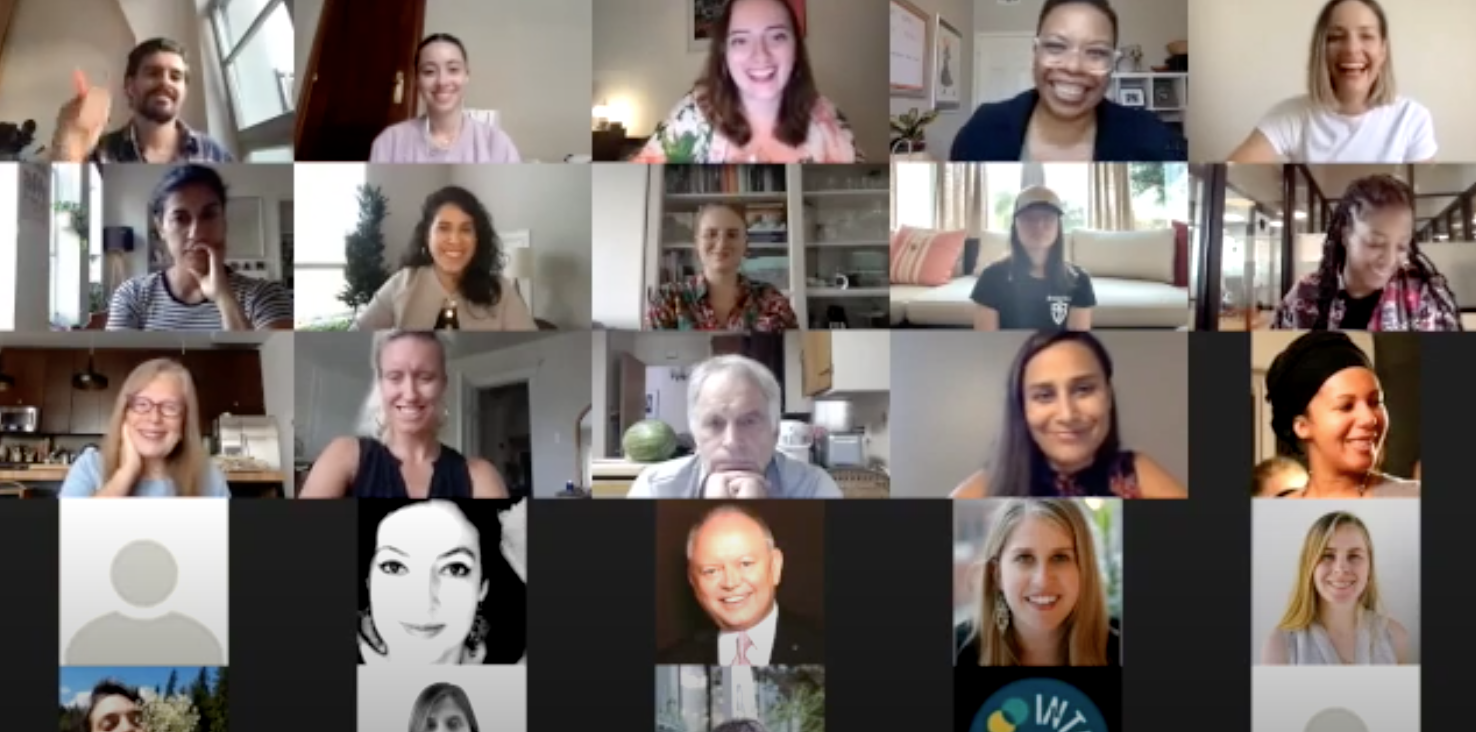How Can Businesses (Meaningfully) Show Up for Racial Justice?
Did you miss Business of Purpose’s Q&A on showing up for racial justice? We recorded the event and distilled the conversation into some key takeaways. You’re welcome.
In the last year, brands have had to confront their role in perpetuating racial injustice while consumers increasingly demand businesses to quit virtue signaling and authentically show up for racial equity. Communities not only expect their favourite brands to align with their values but are now holding them accountable to doing the real work.
In light of those shifting mindsets and demands, our sister brand Business of Purpose hosted a live interactive Q&A with the co-founders of Hella Social Impact to have an open and honest conversation on how business leaders can take a stand on issues of inclusion and racial equity. Hella Social Impact is a Black and non-Black women of color-owned strategic consultancy that works to “notice, name, and dismantle” systems of white supremacy and other forms of oppression that marginalize Black and Non-Black People of Color (NBPOC).
The conversation was moderated by TrendWatching’s own trend analyst, Izzy Ahrbeck, and included the voices of Lynn Johnson and Edita Rodriguez (co-founders of Hella Social Impact), Jennifer Yepez-Blundell (Diversity, Equity and Inclusion Consultant), and Veena Harbaugh (Marketing Director for B Lab U.S. & Canada).

Three main takeaways from our Q&A
In a short 60 minutes, we covered everything from how companies can have conversations about racial justice to how organizations can involve all their stakeholders in their racial equity efforts. You can watch the full talk here. In the meantime, here are three key takeaways.
What are the biggest pitfalls for companies that are trying to engage in racial justice issues?
Typically, the course that businesses have followed is: make a statement, donate some money, and say that you stand by Black lives... and that is where it ends. Lynn invites companies to take a step back and reflect on their past failings. How can organizations take accountability for the harm that they have caused in the past? It goes beyond slapping bandaids on consumer demands and push-back. Edita agrees that one of the easiest traps companies fall into is not being transparent enough – about the good and the bad. Companies should figure out metrics for measuring their impact, and use that framework to hold themselves accountable. How can we expect others to change if we, ourselves, are not willing to make the leap?
Any advice for a brand new business? How can new businesses start?
Lynn Johnson recommends new businesses take time to write down a code of culture and understand which values are important to them as a company. Beyond writing the values, take that code of culture and understand how that looks in your day-to-day exchanges. For example, if your company values equity, spell out how that might look in your work environment. How do you hold meetings? What salaries and benefits do you provide? How do you make business decisions? In Lynn’s own words: “Take advantage of the fact that you are new and plug it in right now!”
How can BIPOC encourage this type of work and ask their organizations to prioritize this work in their own organizations?
It is important to note here that it is not the job of people of colour to be the de facto Diversity, Equity and Inclusion (DEI) Consultant in their organization. Jennifer Yepez-Blundell reminds us that it is tough being a person of colour in a predominantly White environment; to be the one that holds others accountable and continuously pushes for change, despite words falling on deaf ears. Lynn adds how important it is for BIPOC folk to take care of themselves, acknowledging that it is OK to lose steam. Lynn suggests finding a white ally who is interested and willing to raise racial issues in the workplace. This is a call to action for non-BIPOC people to begin DEI work – that means keeping abreast of issues and staying committed.
What can you do today?
Hella Social Impact uses its unique Racial Justice Spectrum Assessment to help companies assess their position and impact. Start showing up for racial justice by following these three steps:
- Notice – Be aware of your history. Understand how colonialism has affected systems across the globe and how this has impacted your industry and current reality as a business.
- Name – Speak plainly while holding yourself, your business and your industry accountable for harm that has been done to BIPOC individuals. Don’t be afraid of talking about race and racism.
- Dismantle – Eliminate policies and practices to make way for new systems that work for all humans.
You can hear more from Lynn Johnson in the latest Purpose Talks episode on brand activism. Keep the conversation going by joining Business of Purpose – a global community of 1300+ purpose-driven professionals working towards a more sustainable, equitable and inclusive future.
This post was written by Caitlin Hughan and Izzy Ahrbeck. Sign up to our newsletter, TW Weekly, to have the latest dispatches from TrendWatching HQ sent straight to your inbox.



